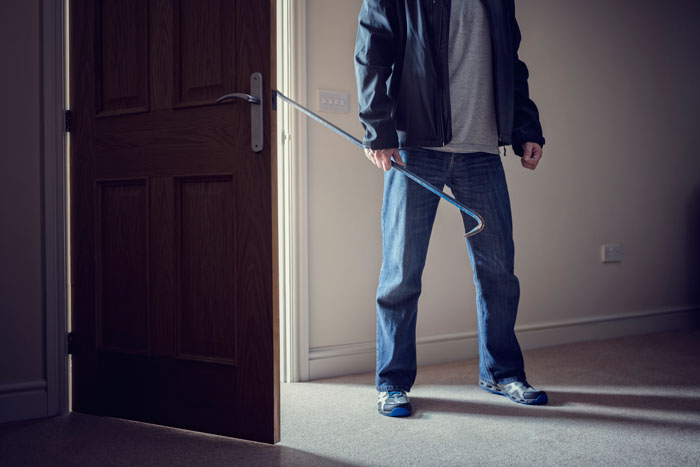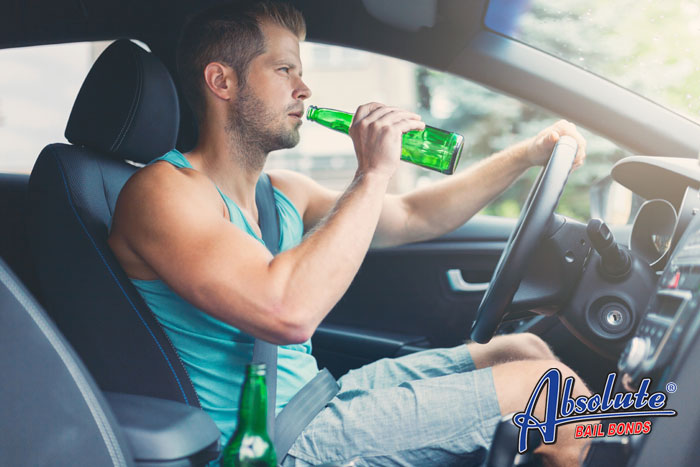
How to Keep Your Life on Track While You’re Out on Bail
Just because you have been released from jail on a bail bond doesn’t mean you’re life will go back to being completely normal. You’ve only been released from jail. Official criminal charges against you will still impact your living over the next few months. You must keep your life on track and organized until your legal matters have been settled.
Here are a few tips that will help you keep your life on track while you’re out on bail.
Review any Restrictions Connected to Your Bail
If you have only been charged with minor crimes, likely, there aren’t any real restrictions connected to your bail. However, if the charges are more serious, the judge probably laid out some rules you must follow if you don’t want your bail revoked. Take some time to review these restrictions and make sure you fully understand how they will impact your day-to-day life.
Let Your Employer Know About Your Situation
Many people hope to hide the news that they’ve been arrested from their employer, but that isn’t always a good idea. First, information about who has been charged with what is readily available in local and online papers. If your employer frequently checks police records or county information, they will likely learn about your charges. It’s far better that they get the news from you.
The second issue is that there will be mandatory court dates in your future; it’s important for your employer to understand why you need those upcoming times off.
Arrange Your Finances so That you Have Budgeted for Bail Bond Payments.
If you signed up for Absolute Bail Bonds zero-down, zero-interest payment plan, you will want to sit down with your normal budget and figure out how to incorporate the regular payments into your budget.
Record Court Date Onto Your Calendar
The most important rule connected to being bailed out of jail is that you must attend all of your mandatory court dates. Don’t assume that you don’t have to go just because it’s something only your lawyer will speak about; you still do. Failing to appear at any mandatory court dates results in the automatic revocation of your bail.
In addition to knowing your court dates, make sure you take some time beforehand to arrange for reliable transportation.
The services our clients enjoy include the following:
- 20% discounts for some applicants
- Zero worry about hidden fees
- Zero-down bail bond
- Zero-interest bail bond
- Flexible payment plans
- Simple contracts
- 24/7 service
- Phone consultations
- Online consultations
To learn more about bail, call (800)793-2245. Free consultations are available 24/7!

How Does A California Bail Reduction Work?
A high bail amount is often the difference between getting released from jail and resuming your life while your case goes through the slow judicial process or spending all of that time stuck in a jail cell.
When bail is set so high that it seems impossible, one of the options you will likely want to explore is a bail reduction. Before you start the process, you should know that it is complicated, time-consuming, and often doesn’t work out. Another and considerably easier and quicker choice is contacting Absolute Bail Bonds about the possibility of getting bonded out of jail.
If you decide to pursue the possibility of getting the bail reduced, you first need to consider why such a large bail was set in the first place. There are several factors California judges consider when setting bail for a defendant, including the following:
- The severity of the characters you’re dealing with
- If you have a prior criminal history and the types of convictions that history includes
- If the prosecutor plans to file additional charges against you
- If you have an account of failing to appear for court dates
- If there is anything that indicates you are a public safety risk or could potentially threaten the safety of your alleged victims whiles you’re out on bail
If you feel that the judge set bail unreasonably high, you can arrange for your lawyer to file a bail reduction motion. If you can show that the high Bail violated statutory or constitutional factors, the amount will likely be reduced.
Another option that is usually more successful is motioning for a bail reduction due to a change in circumstances. The most common reason for this motion to be granted is that some charges were dropped.
If you find yourself in need of bail and are unable to raise funds yourself, you should contact Absolute Bail Bonds. We are a 24-hour bail bond service with decades’ worth of experience helping people like yourself.
Every single one of our clients enjoys the following:
- 20% Discount
- Phone/online approvals
- 0% Interest payment plans
- No hidden fees
- No collateral is required for working signers
To learn more about how you’ll benefit from an alliance with Absolute Bail Bonds, contact us for a free consultation at (800)793-2245.

What Happens During a Bail Bonds Consultation?
Don’t underestimate the importance of a good bail consultation. The consultation allows you and us to get to know one another and decide if we’re a good fit for your needs.
Several things take place during a free bail bonds consultation.
We Collect Your Information
It doesn’t matter if you’re contacting us about yourself or if you’re inquiring about a loved one, the first thing we do is collect some personal information.
The information we require includes the following:
- The full legal name of the person who requires the bail bond
- The name of the jail they’re currently being held at
- Their booking/report number
- The charges that have been filed against them
- The size of the bail bond they require
Once we have this information, we will be able to learn more about any terms, conditions, and restrictions connected to your release on bail.
The conversation doesn’t stop once we’ve collected the first wave of basic information. We will also want to know some of the same things the judge likely inquired about during your arraignment. We will ask about your community ties if you’re employed, and what your criminal history is like, particularly regarding how reliable you’ve been about attending past court dates.
If you’re calling about a recently arrested loved one, we will want to know your relationship with the individual and if you are willing to serve as a co-signer.
We Discuss the Contract
We require that all of our clients sign a contract. This contract outlines any restrictions you agree to follow while on a bail bond. It serves as a promise from you that you’ll attend all of your court dates. If you cannot pay our fee in one payment, the contract will also outline your payments and when they are due. If you’re happy with the arrangement, Absolute Bail Bonds will sign the contract, and we’ll start putting together the bail bond.
Other Issues that are Addressed During the Consultation
Some other things will come up during the consultation. These issues include:
- Whether you’ll need a co-signer
- How our zero down, zero interest bail bond payment plan works
- How you can communicate with us while you’re out on bail
- The importance of letting us know if anything changes in your life while you’re out on a bail bond
- Whether you’ll need collateral and what you can use
What You’ll Like About the Consultation
The two most obvious things you’ll enjoy about our consultation process is that it’s free and that consultations are available 24/7. You’ll also enjoy that instead of an automated system or chatbot, every single one of our consultations is handled by a live person with a great deal of experience with bail bonds.
It isn’t until you’re involved with the consultation that you’ll fully understand how nice it is to talk to someone who is willing to talk you through the entire process and patiently answer all of your questions.
The sooner you contact us, the sooner we can arrange to post a bail bond and release you from jail. Simply call (800)793-2245 for a free consultation.

Absolute Bail Bonds “We Never Sleep”
At Absolute Bail Bonds we make paying for a bail bond easy for our clients. We offer payment plans, 0% interest bail bonds, and personalized payment plans for qualified clients. We will never surprise you with hidden fees like our competitors because we believe in working with honesty and integrity.
- 24/7 Bail Bond Service
- 20% Discount
- Phone approvals
- 0% Interest Payment Plans
- No Hidden Fees – Unlike other bail agencies
- No Collateral with Working Signer
- Se Habla Español
You don’t have to worry when your friend or family member has been arrested. You can count on Absolute Bail Bonds in Los Angeles our bail agents are ready to assist you. Night or day, anywhere in California, we can help you bail out your loved one. Our skilled bail agents will always be available to offer their assistance.
What we do is help people in your situation post bail so they do not have to await their hearing in jail. Our process is simple:
1. Let us know who you need to bail out, their birthday if you know it, and where they are being held. Absolute Bail Bonds will contact that location and gather the rest of the information we need.
2. Tell us your financial situation and will work around it to formulate a customized payment plan with low monthly rates.
3. Review and sign paperwork so you understand what you are paying and the steps you need to take to ensure the bond is accepted (ie making sure the arrested individual appears in court when ordered).
4. Our agents will send paperwork to the location your loved one is at. The paperwork will be processed there and your loved one will be released.
It’s really as simple as that but once we start discussing your situation, we’re sure you’ll have more questions so do not hesitate to ask! For a free consultation simply call 1-800-793-2245.

You Can Count on Absolute Bail Bonds
At some point, you may need to hire a bail bondsman. As much as you don’t want to admit that you think your loved one going to get arrested someday, you know it’s very likely. So, you want to be as prepared as possible.
A bail bondsman will issue a bail bond for your loved one so that he or she can be released from jail. The bail bondsman will charge a 10% premium (like a fee for their services) which is 10% of the full bail amount. You will be allowed to pay off the premium over a set period of weeks or months, whatever you and the bail bondsman agree to. You will need to make sure your loved one shows up for court.
Absolute Bail Bonds in Los Angeles can go into deeper detail when you’re ready to talk one-on-one and get the bail bond processed or if you just want a consultation, free of charge. We can be reached online or on the phone at 1-800-793-2245.

Absolute Bail Bonds Makes Bail Easy & Affordable
We Offer the Best Help with DUI, Drug, Warrant, Domestic Violence, Felony, Traffic, Weapons & Misdemeanor
Absolute Bail Bonds in Los Angeles is committed to serving you and securing your freedom. Our mission is to provide fast, friendly, confidential, and professional service to all of our clients. We believe in the right to bail and that a person is innocent until proven guilty. Because of this, we do not discriminate or judge and welcome anyone and everyone to reach out to us for assistance. Other bail bond companies may turn clients away or do a rush job on their case. But that is not the case for us. We see clients leave our services 100% satisfied with our work and they happily reunite with their loved one. That visual is why we are so honored and so dedicated to the work we do. As a family-owned company, nothing makes us happier than bringing families together.
We will gladly answer any and all questions you may have as there are many other aspects to posting bail beyond just the exchange of money. We regard your privacy and the information you share with us with the highest respect.
We Specialize in Fast, 24 hour availability! Call 1-800-793-2245 get them out within hours!

What You Need To Know About Property Crimes in California
While the term property crimes gets tossed around by the media, in California, you aren’t going to be charged with a “property crime.” The reason for this is because, in California, the phrase property crime is actually a blanket term that’s used to describe multiple crimes.
The four most common property crimes in California are:
- Arson
- Theft
- Burglary
- Vandalism
If the media says that you have been charged with one or more property crimes, it means you’ve been charged with one or more of these offenses.
Arson is pretty self-explanatory. Arson happens when you deliberately set fire to a property. In California, arson is always a felony. If you’re convicted, you will spend anywhere from 16 months to nine years in prison. One of the big factors that determines how long you’re incarcerated includes if you set fire to your own personal property, if the burned structure was inhabited, and if anyone suffered a serious injury as a result of the fire.
One of the interesting things about arson is that it’s the only property crime you can be charged with, even when the property is your own.
There are multiple types of theft charges in California. For a theft to be considered a property crime, it had to have been committed on someone else’s property. Examples of theft that fall into the category of property crime include:
- Shoplifting
- Grand theft auto
- Robbery
- Embezzlement
- Package theft
Whether your charges are for misdemeanor theft or felony theft depends on the collective value of what was stolen. If the property was less than $900, you’d only face misdemeanor theft charges. If it exceeded $900, you’d be charged with a felony.
Most people not only think of burglary as a property crime but also as a violent crime. To be charged with burglary in California, not only do you have to break into someone’s property (house, barn, shed, storage unit), but you have to do so for the purpose of stealing something. If you’re convicted of second-degree or first-degree burglary in California, you’ll face up to 20 years in a California state prison.
Vandalism, while serious, is often considered the most minor of California’s property crimes. Vandalism is simply the destruction of someone else’s property. To be convicted of vandalism in California, you had to intentionally create the damage and knew the property wasn’t yours. The degree of punishment connected to vandalism in California depends on how much damage was caused. Restitution is often part of the sentence.

What is Sober Living in California? How Does It Work?
When most people hear the term sober living, they assume that it refers to a person who has decided to completely abstain from alcohol and drugs.
The truth is that sober living is actually a program that’s designed to help addicts start the long road to recovery.
Sober living in California involves an addict moving into a facility where they will not only be able to avoid temptation but will also be provided with the tools needed to rebuild their lives and learn how to live without drugs/alcohol. In the past, many of the facilities that currently identify as sober living facilities were called halfway houses.
Most of the residents at sober living facilities are individuals who have been recently released from jail for drug charges. Many have just completed a lengthy sentence. The idea behind sending them to a sober living facility is that it provides them with a place to stay and the resources needed to ease their transition back into reality. While many of the people enrolled in one of California’s sober living facilities have been recently released from jail, some are individuals who don’t necessarily have a criminal record but were actually residents of a long-term rehab program who want to reenter life outside of rehab at a slower pace.
The great thing about sober living facilities in California is that they do more than provide residents with a place to stay. They are no longer run like mini-jails that some halfway houses became. While the residents do have rules they have to follow while they are residing at the sober living facility, they also have access to tools and resources that would have been difficult for them to find had they simply returned to their homes.
One of the things sober living residents learn is how to embrace a sober lifestyle and resist the temptation to give into their addiction once they are reunited with their loved ones. This education can include recognizing which people aid in their addiction. What habits triggered their addiction. How to replace illegal substances with healthier, less addictive options.
Each sober living facility has different rules, policies, and approaches to helping the residents establish the foundation for a sober future, but most have a few common rules, which include:
- Zero-tolerance for addictive substances
- Frequent alcohol and drug tests
- Mandatory chores
- Curfews
- Employment requirements
- Mandatory attendance at sobriety support groups and rehabilitation programs
While each person’s experiences are different, many of the people who have gone through one of California’s sober living programs credit the program with giving them the confidence and tools needed to enjoy a sober lifestyle even after they’ve graduated from the sober living program.

4 California Bike Laws you Probably Don’t Know About
Do you spend a lot of time biking in California? If so, there are some California bike laws you’re probably not familiar with.
Bikes and Crosswalks
Did you know that as a cyclist, you’re not supposed to stop your bike in the middle of a crosswalk? When you’re on a bike, you need to treat it the exact same way you would if you driving a car. Instead of pulling into the crosswalk, you’re supposed to stop at it. This gives pedestrians the opportunity and space needed to use the crosswalk.
Prep Your Bike For Nighttime Rides
If you’re cycling at any time between dusk and full-on morning sunlight, you need to have your bike properly equipped with enough equipment that motorists can easily see your bike. It’s not enough to simply rely on the reflectors the bike came with You should also have a red solid or flashing light attached to the back of your bike that can be easily seen from a distance of 500 feet away. On the front of your bike, you need to attach a white light that not only helps with your visibility but can also be seen from 500 feet away.
Ideally, you should wear clothing that has reflectors on it as well.
Keep One Ear Open
You see it all the time, cyclists cruising along with headphones in their ears, taking advantage of their ride to listen to audiobooks, songs, and podcasts. What you probably don’t know is that you can’t legally have two ears full of earbuds or be covered by a headphone while you’re cycling. CVC 27400 states that you must leave one ear uncovered while you’re riding your bike.
Stay Away from that Oversized Bike
If you think it’s okay to send your child out on the bike they haven’t quite grown into, or you’re tempted to purchase a massive bike you’ve been admiring each time you visit your favorite bike shop, you need to think again. California’s bike laws prohibit you from operating an oversized bicycle on public roads.
CVC 21201(c) states that, no person shall operate upon a highway a bicycle that is of a size that prevents the operator from safely stopping the bicycle, supporting it in an upright position with at least one foot on the ground, and restarting it safely.
Were you familiar with these bike laws?

You’ve Been Arrested for DUI… Again
Getting arrested and charged for DUI once in California is terrifying and life-altering. The second time you’re arrested for the same thing is even worse.
Like many states, California lawmakers have decided that to take a hard stance on drunk drivers. One of the ways they’ve done this is by creating laws that make a second (and each additional offense) significantly worse than the first. The reason for this is because while a single DUI could be the result of a bad judgment and an honest mistake, additional arrests indicate that you have a habit of driving while under the influence and a menace to society.
DUIs are addressed in California Vehicle Code Section 23152. The second time you’re convicted of a DUI in California, the result will include losing your ability to drive, fines, mandatory enrollment in substance abuse programs, and jail time.
When you’re convicted of a second DUI in California, you will be required to spend at least 96 hours in the county jail. That’s the minimum amount of jail time connected to a second DUI. The maximum amount of time you can serve is 12 months.
You should expect to pay a higher fine than you did for the first offense. Typically, the fine for a second DUI is between $390 and $1,000, but that might not be all you’ll have to pay. Most courts add penalty assessments to the DUI fine. These assessments can multiply the fine to five times the anticipated amount. In some situations, the judge will allow you to choose to extend the amount of time you serve in jail or do a great deal of community service in exchange for paying the fine.
Since January 1, 2019, a guilty conviction of a second DUI in California requires that the judge order an ignition interlock device be attached to your vehicle. This only happens if the two convictions are less than 10 years apart.
The second DUI means you’ll lose your driving privileges. The good news is that the loss of your license probably won’t be permanent. In California, the current license suspension for a second DUI is a 1-year suspension (administrative per se) or a 2-year suspension if you are convicted.
It’s worth noting that in some situations, the judge will grant you a restricted license. This doesn’t mean you’ll be allowed to drive wherever you want. By if you’re able to present a compelling case to the judge, they’ll allow you to drive to work and to manage things like transporting your children. If you’re caught driving to places that aren’t specified in the paperwork connected to your suspended license or you’re driving at a time when you’re not supposed to, the restricted driving privileges will be taken away.
The only way you’ll be granted a restricted license is if you didn’t refuse to take a blood or urine test when you were originally arrested for the second DUI.
In addition to dealing with the actual criminal consequences of a second DUI, if you damaged property or injured/killed someone while driving drunk, it’s likely you’ll also find yourself engaged in a civil case as well.
The best way to avoid all of these consequences is making sure you never get behind the wheel after you’ve been drinking or using drugs.

